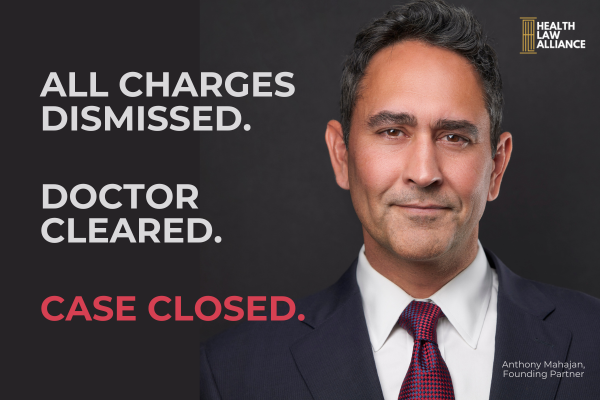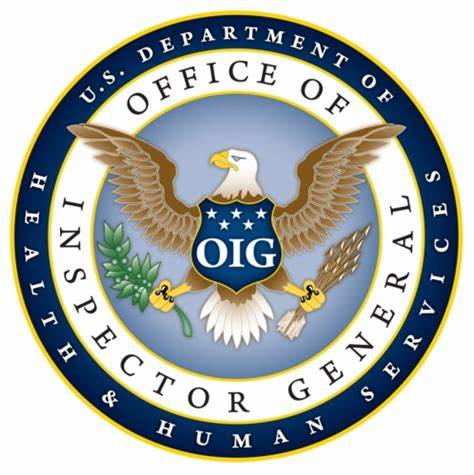Free Consultation
Fill out the form below or call us at (800) 345-4125.
Fill out the form below or call us at (800) 345-4125.

Federal enforcement actions are increasingly focused on remote patient monitoring (RPM) services. In this article, we break down two recent settlements involving RPM companies—Health Wealth Safe and Capital Health—and discuss key compliance takeaways for telehealth providers.
View Article >>
The DOJ’s 2025 National Health Care Fraud Takedown charged 324 people in schemes totaling $14 billion in intended losses, including $1.17 billion tied to telemedicine and genetic‑testing fraud that implicated 49 defendants - signaling the government’s continued crack‑down on virtual‑care abuses. The surge in criminal and civil actions, coupled with CMS suspensions and the new DOJ‑HHS False Claims Act Working Group, warns telehealth providers to rigorously audit their compliance practices or risk severe penalties and exclusion from federal programs.
View Article >>
The U.S. Department of Justice has filed a civil action against Vohra Wound Physicians Management, alleging various schemes to submit false claims for payment to Medicare. Learn more about the ongoing lawsuit and how Health Law Alliance supports wound care providers to avoid legal scrutiny.
View Article >>
Health Law Alliance secured a full dismissal of all federal charges against NJ urologist Dr. Mukaram Gazi, marking an unprecedented acquittal in an otherwise unbroken string of 35 Insys-related prosecutions brought by federal and state prosecutors.
View Article >>
Health Law Alliance attorney Anthony Mahajan, a former federal prosecutor, analyzes Sun Pharma's RICO lawsuit against independent pharmacies and opines that Sun Pharma's attempt to recover refunds it paid on returned goods is prohibited by the federal Anti-Kickback Statute and state commercial bribery laws.
View Article >>
Many healthcare providers face the challenge of dealing with subpoenas for medical records. These legal demands require careful handling. It's important to balance the duty to comply with court processes and privacy laws.
View Article >>
Receiving an OIG subpoena means your healthcare practice is under federal investigation, typically for healthcare fraud or regulatory violations. Understanding how to respond to an OIG subpoena effectively is crucial to protecting your practice.
View Article >>
Express Scripts is using aggressive audits and investigations to recoup the dollar value of test claims that were never paid. Don't let ESI intimidate you—contact us today for effective audit defense.
View Article >>
After the Department of Justice threatened to indict our client for involvement in an alleged $6M healthcare fraud, we stood firm and our tenacious advocacy ultimately convinced the Strike Force to decline prosecution, representing a complete win for HLA's client.
View Article >>.png)
After the Department of Justice threatened to indict our client for involvement in an alleged $6M healthcare fraud, we stood firm and our tenacious advocacy ultimately convinced the Strike Force to decline prosecution, representing a complete win for HLA's client.
View Article >>
The U.S. Justice Department is investigating allegations of Medicare fraud, where senior citizens' ID numbers were used to order unwanted COVID-19 test kits. Learn more about the ongoing investigation and its implications.
View Article >>
Health Law Alliance's Anthony Mahajan is pleased to announce the complete dismissal of a lawsuit brought on behalf of the federal government against a cancer care provider for the submission of false Medicare claims for oncology drugs.
View Article >>
Express Scripts is targeting prior authorization Fraud, Waste & Abuse involving the use of CoverMyMeds provider accounts by pharmacies. Pharmacies and physicians beware.
View Article >>
On the heels of federal criminal investigations into OTC card usage, payors are now auditing OTC processes and imposing severe sanctions, including network termination, for non-compliance. Pharmacies should be wary of increased enforcement in this area and take steps to proactively reduce audit risk.
View Article >>
PBM audits must be handled correctly or severe consequences may result. In this case, HLA was able to persuade prosecutors not to file criminal charges against the pharmacy's owner, but a subsequent civil resolution still involved harsh penalties. It could have been far worse.
View Article >>
Following a PBM audit that uncovered a $6.5 million billing discrepancy, federal prosecutors opened an investigation. After HLA was retained, the U.S. Attorney's Office for the Eastern District of Pennsylvania agreed to a $2.5 million civil settlement in which the Owner denied all wrongdoing.
View Article >>
Health Law Alliance has successfully challenged OptumRx's termination decisions for numerous pharmacies, ensuring they can continue to operate and serve their communities. These victories highlight the firm's expertise in healthcare law and its dedication to protecting pharmacy clients from unjust PBM actions.
View Article >>
Providers need to know their rights when it comes to investigations and audits by CMS UPIC contractors, such as SafeGuard and Qlarant. These investigators are private citizens, with no more authority or power of law than anyone else. Yet, they often employ traditional law enforcement techniques. Don't be fooled.
View Article >>
The federal government continues to bring enforcement actions relating to false prior authorizations given the high-priced medications typically involved. In this case involving Walgreens, we take a deeper dive into potential theories of liability and the use of civil investigative demands and subpoenas in healthcare fraud cases.
View Article >>
Department of Justice prosecutors continue to file numerous cases against pharmacies and their owners for inventory shortfalls and other discrepancies. These cases arise out of referrals by government contractors following a pharmacy audit, and often involve severe potential consequences.
View Article >>
Based on a recent announcement, the federal government (HHS-OIG) will be prioritizing audits of pharmacy claims in 2024. This further signals that pharmacy audits from all angles are on the rise.
View Article >>
Although DEA has long targeted wholesalers as the "choke-point" for stemming diversion, the Agency has now shifted its focus to downstream physician and pharmacy registrants. Providers who thought they understood DEA risk need to revisit their planning because the enforcement paradigm has changed dramatically.
View Article >>
Federal prosecutors are expanding a healthcare fraud investigation, charging New York pharmacy owners and employees for violations related to OTC card practices. Health Law Alliance, led by Anthony Mahajan, emphasizes the severity of charges, urging providers to act promptly to limit exposure.
View Article >>
Anthony Mahajan, an attorney at Health Law Alliance, contends that Novo Nordisk's recent lawsuits against Florida compounding pharmacies to stop semaglutide compounding are baseless attempts to limit market availability and intimidate compounders. Mahajan highlights the legality of semaglutide compounding under Sections 503A and 503B of the FD&C Act, emphasizing that Novo's arguments lack substance and should not intimidate semaglutide compounders who play a crucial role in meeting patient needs.
View Article >>
Health Law Alliance's Anthony Mahajan discusses the potential outcomes and strategies related to Pharmacy Benefit Manager (PBM) audits, emphasizing the importance of understanding the intersection between government enforcement actions and PBM audits. With unmatched experience in PBM audit defense, Mahajan highlights the firm's achievements in resolving cases involving inventory discrepancies and government investigations, offering comprehensive solutions to protect clients against potential liabilities.
View Article >>
Federal prosecutors have decided not to prosecute the CEO of a Florida specialty pharmacy, represented by Health Law Alliance's Anthony Mahajan, in connection with an alleged healthcare fraud scheme involving Evzio. The successful defense resulted in an innovative $1.3 million civil settlement, avoiding criminal charges and exclusion from federal programs.
View Article >>
Federal prosecutors are now pursuing felony charges under Section 1035 for false statements in pharmacy audits, extending the risk of criminal prosecution for healthcare providers. Recent cases highlight the importance of legal counsel, such as HLA's experienced attorneys, to safeguard against potential legal consequences.
View Article >>